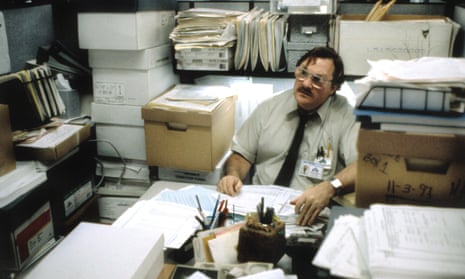After the sixth requested revision to our report, the fifth change in project manager, and the hostile conference call, I started to get really frustrated again about being a consultant. My colleagues and I had spent many months and considerable energy, resources and brain power working on a study commissioned by a consortium of NGOs to understand issues faced by a particularly vulnerable group in a poor country, yet our work was not valued, understood, or utilised by the organisations that had hired us.
Having worked as a consultant for the better part of two decades, this recent experience confirmed what I see as a worsening trend in international development. We consultants get a bad rap, but these days, I’d say the problem with consultants is not us, it’s the people who hire us, manage us, and use (or don’t use) our work.
Decades of donor fatigue and tightening aid budgets, combined with larger numbers of highly educated and underemployed young people eager to make a difference in the lives of the poor, have resulted in an abundance of inexpensive and inexperienced expats keen to take low-paid jobs overseas. International NGOs hire these inexperienced expats, whose educations they understand and feel confident in (and who fit the job descriptions exclusively advertised in Europe and the US) especially for positions with technical responsibilities in humanitarian work like “fill-in-the-blank technical adviser” or “programme coordinator”. I know this because I was once was a young, expat NGO worker too.
This has resulted in organisations that are staffed by idealistic, freshly graduated people, who, because they have one or two international jobs under their belt, feel that they are development experts.
Inevitably, much of the difficult technical work that needs to be done by such organisations (monitoring and evaluating, conducting research to understand the populations they are supposed to be helping), gets farmed out to consultants. And unfortunately more and more often those consultants are managed by the inexperienced staff assigned by the heads of these NGOs (who presumably, are too busy defending their overheads to read consultant reports or negotiate the required deliverables). Opinions of local local staff are also increasingly undervalued. This is quite different from when I started in development work long ago.
Which brings us to reasons that heads of development organisations increasingly like to hire consultants: hiding deficiencies of capacity and lowering overhead. If you don’t have the budget, or can’t defend the overhead needed to hire competent technical staff with good experience to do the work required, but you still need to look like you’re doing something useful, you can always hire consultants. And then, when you task them with an impossible amount of work to be done on a shoestring budget and ridiculously short timeframe which doesn’t produce the results you think your donors will like, you can always fire them and keep their intellectual property (which they signed over to you in the contract). Thus making it appear that you have technical capacity which you don’t have.
And if the consultants kick up a fuss over their contract being terminated prematurely (which you warned them could happen for pretty much any reason at all)? Just get one of your go-getter, young expat staff to criticise the consultant’s work, quoting from an “Intro to Development/Research/Statistics” class that they took a few years ago.
Another great strategy is to have the consultants work as quickly as possible, and then take ages to get back to them with your comments, or to feed back six or seven people’s contradictory comments at once, so they’ll never be able to satisfy you all. If that doesn’t work, complain that their writing is not of an acceptable standard.
Sometimes, there is so much turnover in your young staff, who are wrapped up in their own personal turmoil, hangovers, and love triangles (par for the course where people of reproductive age are cooped up in exotic destinations) that you can easily lose track of what the consultants are doing or were supposed to have done. No problem, you can always hire someone else to sort it out.
One of the hardest things though, for a consultant, besides feeling completely expendable and at the whim of people who know less than you but feel they know more, is when your work is put on a shelf and not used or integrated at all into an organisation’s strategy. Pulling up to an NGO’s headquarters by public transport, and watching as a young expat staffer arrived in a huge Landcruiser (from an office only a few blocks away) was disheartening enough. Finding out that after the seventh version of the final report, they are still not interested in your results is the last straw.
Watching the youngster, who has never even been out to “the field” since arriving six months ago, drive away, I start to think, has it come full circle? Do I just go off to the private sector now?
Do you have a secret aid worker story you’d like to tell? You can contact us confidentially at globaldevpros@theguardian.com – please put “Secret aid worker” in the subject line. If you’d like to encrypt your email to us, here are instructions on how to set up a PGP mail client and our public PGP key.
Join our community of development professionals and humanitarians. Follow @GuardianGDP on Twitter.

Comments (…)
Sign in or create your Guardian account to join the discussion